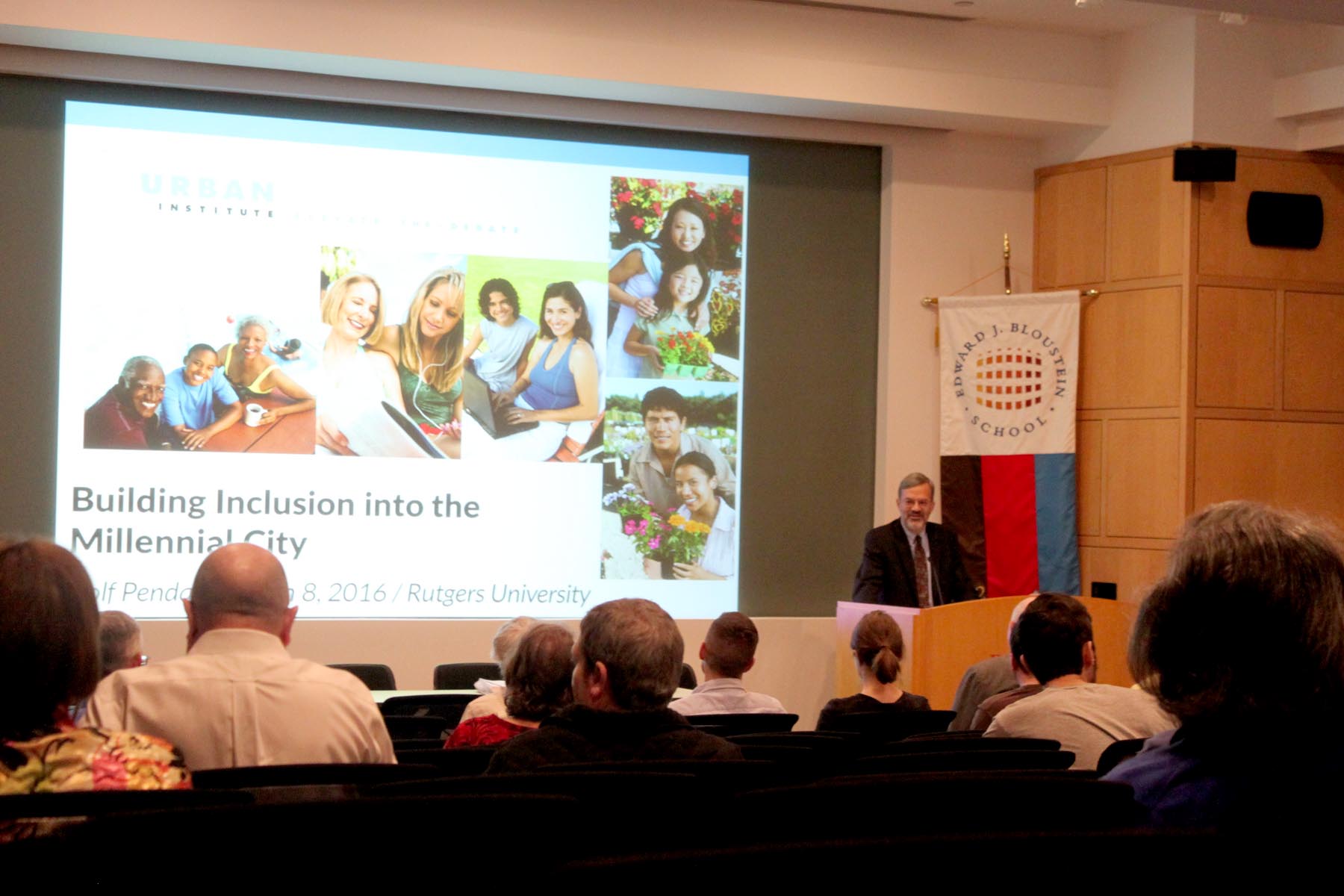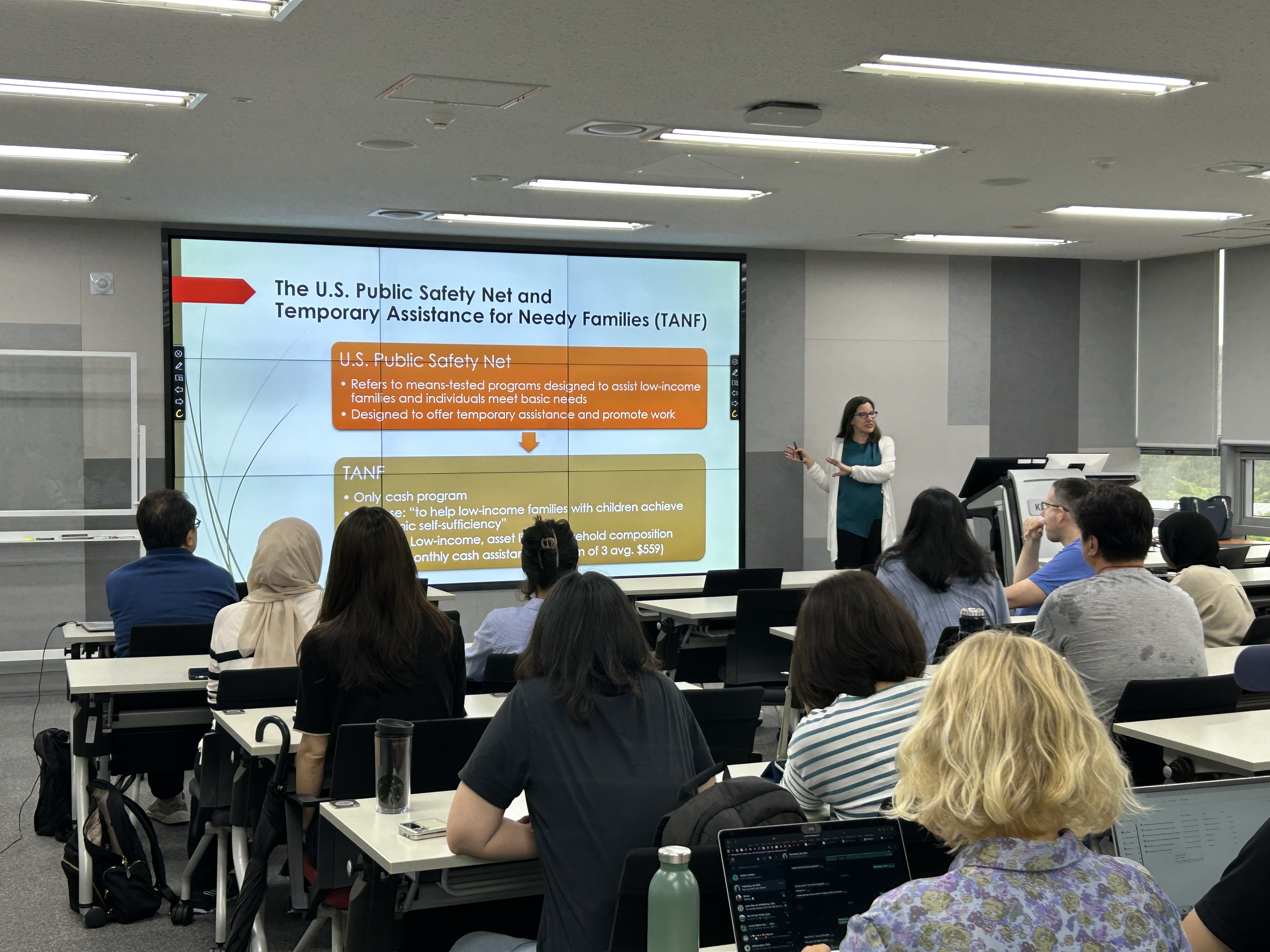 The annual Catlin lecture brought over 70 students, faculty, and Bloustein community members to the Special Events Forum the first week of March. Rolf Pendall, the Director of the Metropolitan Housing and Community Policy Center at the Urban Institute gave the lecture. His talk, “Building Inclusion into the Millennial City,” focused on the changing demographics of the nation, the state of New Jersey, and several New Jersey counties.
The annual Catlin lecture brought over 70 students, faculty, and Bloustein community members to the Special Events Forum the first week of March. Rolf Pendall, the Director of the Metropolitan Housing and Community Policy Center at the Urban Institute gave the lecture. His talk, “Building Inclusion into the Millennial City,” focused on the changing demographics of the nation, the state of New Jersey, and several New Jersey counties.
Pendall divided his lecture into three sections. He first discussed this history of American planning’s “Apartheid origins,” highlighting some of the extreme, but unfortunately common, racist and divisive planning laws throughout the United States until the mid-20th century.
The second section examined the “Fuel for Inclusion,” in housing and demographics within the United States; it looked at the demographic and housing trends of the past several decades. Pendall used historical data as well as projections to look at the racial and income trends of home ownership location around the country, and how the housing choices of the Baby Boomers will affect the housing choices and options of the Millennial generation.
His final discussion took the broad planning and demographic strokes with which he had been analyzing the nation and applied them specifically to New Jersey. In addition to looking at New Jersey on a state level, Pendall examined several regions in New Jersey, and analyzed some projections specifically for Middlesex County.
Pendall outlined four scenarios that he thought could potentially occur in New Jersey. Two of these scenarios involve suburban locations. The first scenario focused on renewal and increasing the density of single family homes in New Jersey’s many old suburban subdivisions, while retrofitting them for the aging. The suburban scenario would be to redesign and reuse the state’s many abandoned retail and office.
The second two scenarios involve urban locations. The first revolves around new investment in distressed and diverse places such as Camden, while the second scenario involves anticipating neighborhood renovations and price increases in order to act now and preserve and avoid displacement for current communities. Pendall mentioned the Mt. Pleasant neighborhood in Washington, DC as an example of this.
After finishing his lecture Pendall took a variety of questions from the audience. His in depth and informative lecture generated almost thirty minutes of additional conversation, ranging from the specific types of housing millennial might choose, to the future of mortgage finance policy, and how the sharing economy might affect these projections.
The Robert A. Catlin Memorial Lecture commemorates former Bloustein School professor Robert Catlin, who passed away in 2004. In addition to serving in numerous posts at different organizations and universities around the nation, he researched urban revitalization and the impact of race in policy-making decisions at the Bloustein School.



